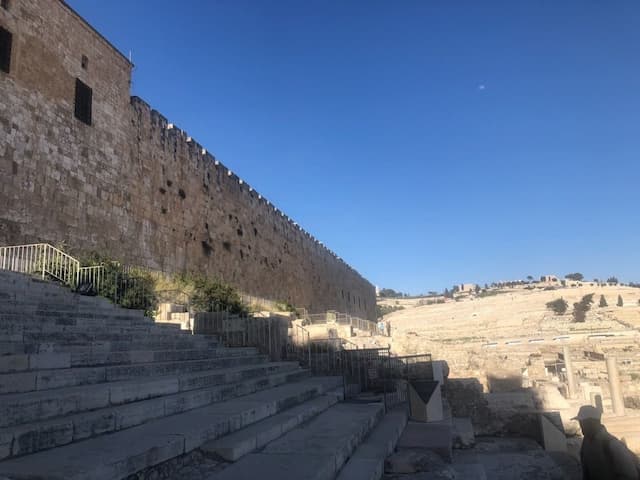Who is the sleeper? (Ephesians 5:14)
Hint: it’s more than an individual.
What does this mean?
Ephesians 5 14 This is why it is said: “Wake up, sleeper, rise from the dead, and Christ will shine on you.” (NIV)
It’s not an Old Testament quotation. Was it a baptismal formula, something early churches said as they laid someone back in the water and raised them up in the Lord? That’s an attractive idea but it doesn’t really work: you is plural, even though sleeper is singular. It seems the sleeper is a corporate entity, not a baptismal candidate.
While not a direct quote, it could be a distillation of Isaiah’s extensive imagery of light and dark (Isaiah 54–62).
Light/dark in Isaiah
Previously, we noted that the light/dark metaphor in Ephesians 5:8-14 doesn’t match Zoroastrianism, Jewish apocalyptic, or Qumran. Does it match Isaiah’s usage?
When Assyria captured the northern tribes, Isaiah described Galilee as covered in gloom … darkness … deep darkness (9:1-2). It felt like they had died in the dust, waiting For God’s wake-up call to rouse them to life (26:19).
When Babylon captured what was left, the people called to be a light for the nations ended up sitting in darkness (42:6-7). In exile they lament, We look for light, but all is darkness; for brightness, but we walk in deep shadows (59:9).
Israel was God’s rescue project for the world, so God is displeased that there is now no justice on earth. He announces he will don his armour and fight for their release (59:15-18). Freeing his people gets his rescue project back on track for the nations too: From the west, people will fear the name of the Lord, and from the rising of the sun, they will revere his glory (59:19).
Since the Abrahamic project was for the benefit of the nations (Genesis 12:1-3) and Israel was established as God’s mediator to the nations (Exodus 19:4-6), rescuing Israel from the nations puts salvation history back on track. Isaiah’s salvation-history message works like this:
- The nations are in darkness.
- The nations capture Israel: God’s people are captives in darkness.
- God restores his people: God’s people are the brightness of his presence.
- The nations come to the light.
This is the light/dark metaphor in Isaiah. God’s action at the heart of the problem (#3 resolving #2) also resolves the wider issue (#4 is the resolution to # 1). Like this:
Isaiah 60 1 Arise, shine, for your light has come, and the glory of the Lord rises upon you.
2 See, darkness covers the earth and thick darkness is over the peoples,
but the Lord rises upon you and his glory appears over you.
3 Nations will come to your light, and kings to the brightness of your dawn. (NIV)
When God overturns their captivity in darkness (#2), his brilliance shines in Zion (#3). The nations that were in darkness (#1) are now bathed in his light (#4). Restoring Israel ultimately restores the nations.
Isaiah unpacks this metaphor with images of the nations bringing tribute to Zion and proclaiming the praise of her sovereign (60:6). The restoration of Zion transforms the nations on all sides (60:6-14), so foreigners rebuilt your walls and their kings will serve you (60:10). Even the descendants of those who previously oppressed Israel bow to God’s government (60:14).
This transformation is so pervasive that Isaiah calls it the end of violence (60:18). The darkness has gone because the Lord is their everlasting light (60:19-20). The Lord’s Messiah decrees release from darkness for the prisoners (61:1).
Light/dark in Ephesians
The good news announced by Isaiah has arrived in Christ. He resolves the oppression for Israel and for the nations. As non-Jews, the Ephesians were darkness (5:8). They lived under the reign of evil (2:2), with the Jewish people who were also captives of the darkness (2:3). The Messiah joined them in death, and raised up his people in himself when he rose from the dead (2:5-7). His benevolence rescued the nations also (2:8), a peace-making proclamation that united Jews and gentiles in a new humanity in himself (2:11-22).
The multi-faceted wisdom of God solved both problems at once. Installing his Messiah solved the problem of God’s people and the problem of the nations (3:1-12). Every family in the cosmos benefits from his reign (3:14-21).
The Ephesians who were outside the covenant people (darkness) are now the Messiah’s covenant people (light in the Lord). As his people (children of light), they must find out what pleases their Lord, so they can fulfil their role i.e. participate in producing the fruit of the light as the community where his goodness, righteousness and truth grows on earth (5:8-10).
They can no longer participate in the violence and oppression that characterized the dark nations and threatened to extinguish the light. As the light they inevitably expose the destructive and fruitless activities of the darkness, even without talking about it (5:11-14).
The light/dark imagery in Ephesians matches the logic of the metaphor in Isaiah.
Conclusion
So, who is the sleeper being roused in 5:14?
It’s the same call as Isaiah 60:1: Arise, shine, for your light has come, and the glory of the Lord rises upon you. Isaiah’s call was directed to Zion, calling her to respond as the Lord lifted his people out of darkness into the brightness of his presence, with the hope that the nations would come out of darkness into her light.
The prophetic call in Ephesians extends beyond old Zion. The wake-up call is not only for Old Jerusalem, but for the nations as well. Those who were previously darkness are becoming light in the Lord. His call rouses everyone, both the covenant people ensnared by the darkness and the nations who were the darkness. The Christ-light is creating a new united humanity, calling all who were in darkness into the light of his reign.
The sleeper is more than old Zion. It’s a new Zion — a whole world being raised out of death, into the Christ light. The sleeper is the entire creation to whom God issues his gospel call.
Related posts
- Light and dark (Eph. 5:8-14)
- In Christ: humanity restored (Eph. 2:1–10)
- Good news of peace (Eph. 2:11-22)
- The apocalyptic framework of Eph. 3
Seeking to understand Jesus in the terms he chose to describe himself: son of man (his identity), and kingdom of God (his mission). Riverview College Dean
View all posts by Allen Browne



